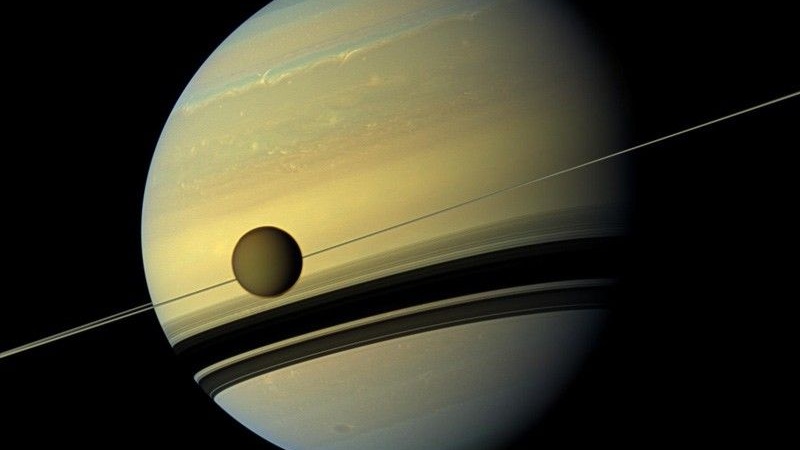Public Split on Alien Invaders and Spooky Specters
Breaking space news, the latest updates on rocket launches, skywatching events and more!
You are now subscribed
Your newsletter sign-up was successful
Want to add more newsletters?

Delivered daily
Daily Newsletter
Breaking space news, the latest updates on rocket launches, skywatching events and more!

Once a month
Watch This Space
Sign up to our monthly entertainment newsletter to keep up with all our coverage of the latest sci-fi and space movies, tv shows, games and books.

Once a week
Night Sky This Week
Discover this week's must-see night sky events, moon phases, and stunning astrophotos. Sign up for our skywatching newsletter and explore the universe with us!

Twice a month
Strange New Words
Space.com's Sci-Fi Reader's Club. Read a sci-fi short story every month and join a virtual community of fellow science fiction fans!
Monday night was Halloween, so I spent a couple of hours dosing the neighborhood kids with carbohydrate treats. Most of the diminutive petitioners at my door were intent on being scary, and therefore dressed themselves as ghouls, goblins, or politicians.
I enjoyed these juvenile impersonators, but it never occurred to me to believe that these kids were mimicking real entities (excepting, of course, the politicians). However, my skeptical mood seems to be out of synch with that of my neighbors. A just-released Gallup poll notes that 37% of Americans believe that "houses can be haunted." Our counterparts in Canada and Britain share this level of belief in a demon-infested world, and roughly a quarter of those surveyed reckon that folks can hear from, or communicate mentally, with the dead.
Neither the decided dearth of exhibits on haunting science at the local museum, nor the absence of refereed journals on ectoplasmic studies in the university library seem to matter. The lack of celebrity interviews with dead people in Time or Newsweek is irrelevant. A large chunk of the populace believes--and that's that.
Now you could contend that all of this is pretty harmless. Honestly, if people like to think that spirits are bunking down in the condo next door, so what? The housing market's still strong.
But this disposition to superstition gets people's knickers in a twist when it brushes up against science, for it's here that credulity eases from the supernatural to the pseudoscientific. According to Gallup, a quarter of Americans think that astrology can affect people's lives. The Astronomical Society of the Pacific, noting the work of Jon Miller of the International Center for the Study of Scientific Literacy at the Chicago Academy of Sciences, reports that one in five Americans isn't sure whether the Sun revolves around the Earth or the other way 'round.
Now if you're an astronomer, these things rankle, because they ignore the 500 years of sweat-equity we've expended to unravel the physics of the solar system. And even aside from this blatant disregard for the efforts of academe, you might legitimately argue that it's a bad idea to have astrologers exert control in, say, the White House or the Tsar's palace.
However, there was some good news (at least for scientists) in the latest Gallup sampling. When asked "do you believe that extraterrestrial beings have visited Earth at some time in the past," 51% said no. That fraction has risen. In a 1990 poll, 41% said no, and in 2001, 38%.
Breaking space news, the latest updates on rocket launches, skywatching events and more!
Is the difference significant? If you did your statistics homework in college, you'll recall that, in a random sample, the error is roughly the reciprocal of the square root of the number of people polled. Now that's a tough sentence to parse, but put it this way: Gallup polled about one thousand people. The square root of 1,000 is 32, and the reciprocal is 1/32, or 3%. That's the error the pollster quotes.
So the point is that the fraction of people who are skeptical about alien visitation (51%) is really significantly more than the roughly 40% who gave this answer in past polls.
Now I remind you that this bit of math assumes that the group of people polled was random, which is to say typical and representative. It's dead easy to find a non-random sample, and get results sure to elevate your eyebrows. Rob McConnell, who hosts a radio show called "The X Zone," recently did Internet surveys on two questions: do you believe in ghosts, and did American astronauts really walk on the moon. To the first question, 77% of the respondents said yes, and to the second (to which an astounding 19 thousand people replied) 93% said no!
Get this: the respondents believe in ghosts, but don't think NASA put people on the moon. On the one hand you have uncorroborated eyewitness testimony about noises in the attic, and on the other a decade of effort by tens of thousands of engineers and scientists, endless rocket hardware, thousands of photos, and 840 pounds of moon rock. It's almost enough to make you think that the "X Zone" failed to query a random sample.
These sorts of polls, which invariably show the shortcomings of Homo sapiens' ability to make deductions based on repeatable, objective evidence, are nothing new. Indeed, they may be difficult to eradicate, since, as children, we fabricate intuitive theories to deal with the unobservable. This explains much of the world for us, but also, as an English astronomer pointed out to me, leads us to assume that it is inhabited by magical forces - a point of view that the polls continue to reveal as highly ingrained.
While ghostly ghouls and chats with departed relatives are one thing, scientific proof of a major new phenomena is something else. So I'm trying to look on the bright side. Despite years of "The X Files" and Fox specials, the public seems less prone to believe that aliens are visiting Earth. That, at least, suggests that the analytic reasoning of science may be making a bit of headway.

Seth Shostak is an astronomer at the SETI (Search for Extraterrestrial Intelligence) Institute in Mountain View, California, who places a high priority on communicating science to the public. In addition to his many academic papers, Seth has published hundreds of popular science articles, and not just for Space.com; he makes regular contributions to NBC News MACH, for example. Seth has also co-authored a college textbook on astrobiology and written three popular science books on SETI, including "Confessions of an Alien Hunter" (National Geographic, 2009). In addition, Seth ahosts the SETI Institute's weekly radio show, "Big Picture Science."
